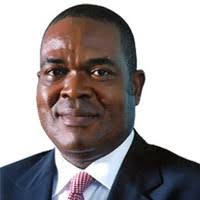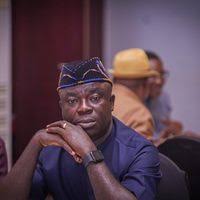Marcel Okeke
Without any fear of contradiction, stocks trading (activity) on the floor of the Nigerian Exchange Group (NGX) in the first quarter 2025 resulted to a monumental capital flight from Nigeria. This means that there was a very large scale withdrawal of capital from the country via trading on the NGX, essentially by foreign investors. Specifically, foreign investors pulled out N420.37 billion from the Nigerian equities market in the first three months, 2025—representing over 250 per cent increase compared to only N119.80 billion that the investors pulled away during the same period in 2024.
This sudden, huge jump in the sum pulled out by foreign investors (in a very short time) obviously constitutes a sort of ‘drag’ on the Nigerian economy.A ‘drag’ refers to a factor that slows down or hinders economic growth, development or progress.
Massive pull out of funds from the NGX by foreign investors vividly depicts the volatility being unleashed by reliance on foreign portfolio investments (FPIs).In the past two years or so, the Central Bank of Nigeria (CBN) has entrenched a tight monetary regime, raising the Monetary Policy Rate (MPR) from 18 to 27.5 per cent.
It has used that stance to offer mouthwatering rates (of returns) on government securities it has been selling to investors (especially FGN Treasury Bills).Although the attractive rates pulled in FPIs, such investments only brought “hot money” that quickly leaves Nigeria soon after the investment. However, the surge in FPIs inflow has not only induced but also heightened the volatility and uncertainty in the Nigerian economy.
The huge assets repatriation (or capital flight) engendered by the FPIs has, in part, been responsible for the unceasing depreciation of the Naira (in the foreign exchange (FX) market). This is because the CBN could not effectively rely on the highly volatile FDIs to manage FX availability in the economy.
In point of fact, the impression now subsists among perceptive observers that the CBN’s persistent raising of the Monetary Policy Rate (MPR) is only aimed at attracting more and more of the FPIs. But the more such “hot money” flows into Nigeria (as in the past two years), the more elusive the nation’s macroeconomic stability gets. Adjunct to this scenario is that the deliberate moves to woo FDIs have unwittingly made local borrowing more expensive; thus, inadvertently slowing down economic activity.
Credit facilities are being priced out of the reach of many micro, small and medium-scale enterprises (MSMEs) and other start-ups.But it needs to be noted that huge outflow of FDIs (as recorded by Nigeria in the first quarter 2025) amounts to some sort of vote of no confidence on the state of the nation’s economy. Without a doubt, the subsisting high inflation, large and rising budget deficit, mounting public debt, continued Naira devaluation, and spreading insecurity create uncertainty that engender capital flight.
While the FDIs “hot money” is ‘flying’ away, another form of capital flight that has been raging on remains the unstoppable exodus of many ‘foreign’ companies from Nigeria. Although a number of factors, including policy somersaults, have led to the exit of many companies from Nigeria, the number in recent years is rather alarming.Some of the companies that left Nigeria fully or in part since 2023 include Procter & Gamble (P & G) Nigeria, Unilever Nigeria Plc, GlaxoSmithKline Consumer Nigeria Ltd, ShopRite Nigeria, Sanofi-Aventis Nigeria Limited.
Others are: Equinox Nigeria, Microsoft Nigeria, PZ Cussons Nigeria, Diageo Plc, Bolt Food and Jumia Food Nigeria, Kimberly-Clark Nigeria, etc.Directly or indirectly, each of the exiting companies, including the International Oil Companies (IOCs), largely blamed their departure on the negative impacts of recent economic reform measures of the Federal Government of Nigeria. While many of the exiting multinationals receded to their global headquarters at the metropoles, some opted to relocate to Nigeria’s neighboring West African countries.
Till date, rather than improve, the asphyxiating environment foisted by recent reform measures, has continued to scare existing and potential investors. This trend is heavily buttressed by the reactions of the Manufacturers Association of Nigeria (MAN) to the outcome of the CBN’s Monetary Policy Committee (MPC) meeting that ended on Tuesday, May 20, 2025. Specifically, MAN vehemently decried the retention of the very high interest rate stance of the monetary authority.
MAN’s Director-General/CEO, Segun Ajayi-Kadir, in a statement warned that the current interest rate regime “is undermining the country’s manufacturing base and economic resilience.” He said the decision by the CBN to retain the Monetary Policy Rate (MPR) at 27.5 per cent since November 2024 was out of step with global economic trends, where many nations were reducing interest rates to support growth and industrial recovery.“Over the last quarter, countries such as members of the Euro Area, the United Kingdom, Denmark, Australia, China, India, Thailand, and Egypt have implemented interest rate cuts to bolster economic growth and support productive sectors”, the MAN boss said, warning that “Nigeria’s rigidity continues to create unintended consequences that may deepen the parlous performance of the productive sector.”
The MAN D-G pointed out that with credit priced as high as 37 per cent (given the MPR at 27.5%), Nigeria ranked among the most expensive environments globally for manufacturers seeking loans. “A nation cannot industrialize on the back of prohibitively expensive credit,” he warned.
MAN’s stance boldly underpins the growing suspicion in the polity that the sustained high MPR is mainly targeted at wooing FDIs at the expense of the local productive sector. This accounts for why local manufacturers (big or small) keep struggling to meet operational costs and sustain production, as rising borrowing costs have forced them into low capacity utilization and declining investment returns.In this regard, the MAN boss again warned that: “A nation that woos foreign portfolio investors at the expense of its real sector may unwittingly be aspiring to build prosperity on the back of volatility.”
While maintaining a high interest rate of 27.5 per cent may temporarily attract speculative FPIs, “it is doing so at the expense of Nigeria’s manufacturing base, which is now choked by unsustainable borrowing costs,” Ajayi-Kadir said.It has therefore become a ruse or unacceptable subterfuge for the CBN to cling to “fighting inflation” to keep choking local businesses. The oncoming “Nigeria First” policy should therefore be couched with the capacity to stem the high tide of capital flight that has been dwarfing Nigeria’s economic growth and development.
As Nigerians are made under the “Nigeria First” to consume what we produce, and produce what we consume, local businesses must be adequately encouraged to keep bracing the odds, and avail Nigerians with quality alternatives to imported goods. The Government must begin to address head-on, the horrible infrastructural gaps that scare or frustrate businesses out of Nigeria.It is hereby strongly recommended that in the seeming absence of any overarching economic blueprint, the “Nigeria First” Presidential Executive Order has a lot of challenges to address.
Enough of mantras, singsongs, sloganeering, and propaganda!
The author, Okeke, a practicing Economist, Business Strategist, Sustainability expert and ex-Chief Economist of Zenith Bank Plc, lives in Lekki, Lagos.
He can be reached via: obioraokeke2000@yahoo.com (08033075697) SMS only




